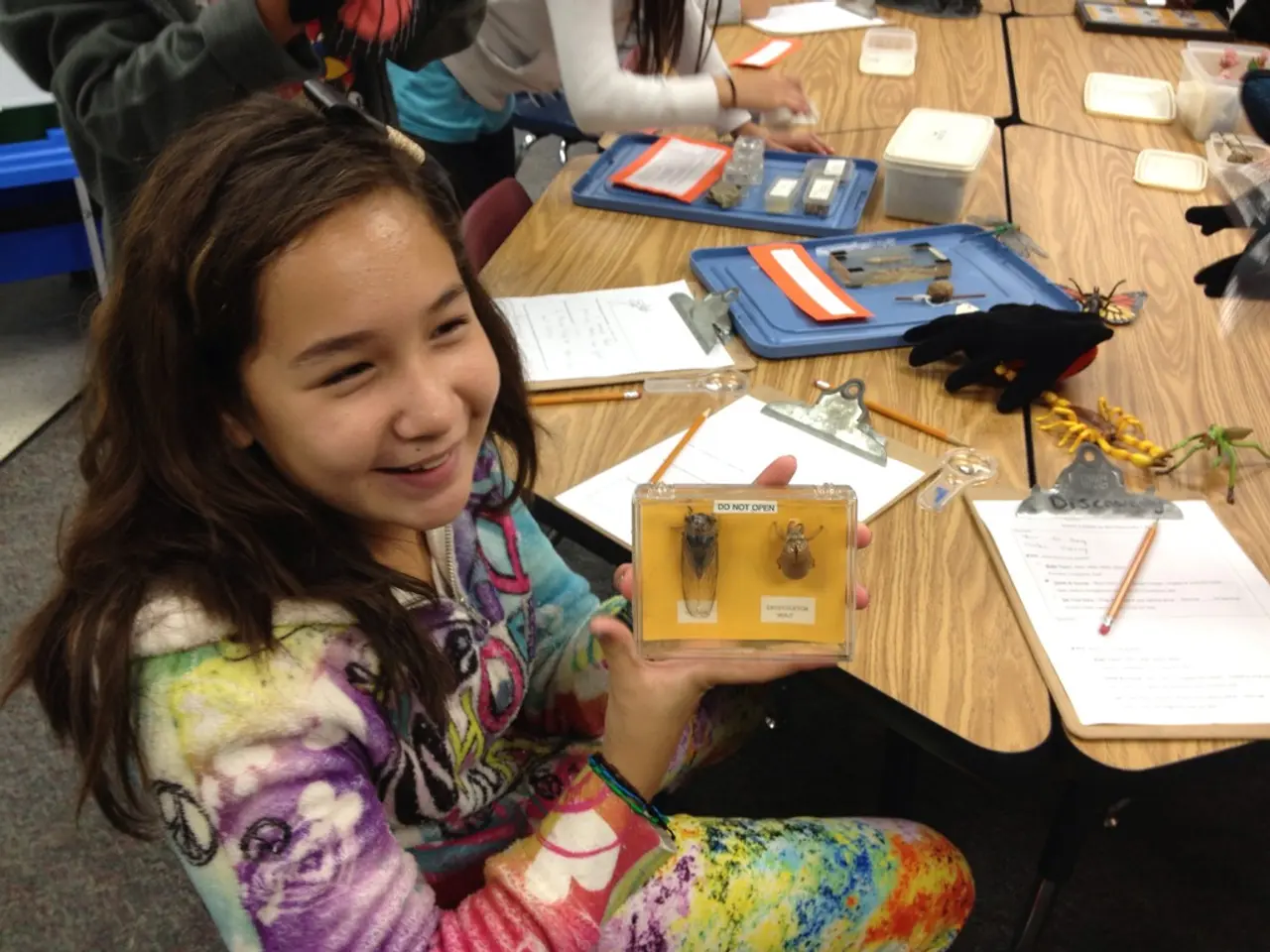Artificial Biology Networks Carry Out Logical Operations and Store Results
Advancements in Synthetic Biology: Bacteria with Memory
Synthetic biology is taking a significant step forward with the development of genetic circuits that allow bacteria to remember and respond to environmental signals over time. This groundbreaking technology could revolutionize various fields, from environmental monitoring to biomanufacturing and stem cell programming.
Researchers have been successful in creating sophisticated genetic circuits within bacterial cells using platforms like T7-ORACLE. This technology accelerates the evolution and engineering of proteins inside cells, enabling rapid optimization of functions within bacterial hosts without damaging their genomes [1]. By integrating these circuits with genetic memory capabilities, bacterial sensing and response fidelity can be significantly enhanced.
CRISPR-based tools are another key component in this advancement. They expand the precision and complexity of genetic modifications, including in stem cell programming, by enabling targeted genomic rearrangements and regulation without permanent DNA damage [2][3]. Combining these tools with memory circuits allows for dynamic control of gene expression based on past stimuli.
Synthetic genetic memory circuits often use mechanisms like recombinases or epigenetic marks to record cellular events stably. Recent progress includes raising memory stability and integrating multi-signal logic, allowing bacteria to track complex environmental changes over time, increasing their utility in monitoring pollutants, toxins, or metabolic states [3].
Potential Applications
The potential applications of these advancements are vast. In environmental monitoring, engineered bacteria with memory circuits can detect and record the presence or duration of pollutants or changes in environmental parameters, providing a lasting record that can be read out later to monitor contamination events, even intermittently [3].
In biomanufacturing, genetic circuits with memory can optimize metabolic pathways dynamically by remembering prior metabolic states or environmental conditions, enhancing production yields and reducing the need for continuous external control [1].
Stem cell programming is another area where synthetic biology could make a significant impact. By constructing gene networks with memory to guide differentiation programs, researchers can improve the precision and efficiency of generating desired cell types for regenerative medicine [2][3].
These advancements are supported by rapid progress in DNA synthesis, machine learning for genetic design, and scalable automated systems, collectively accelerating the development of reliable, complex genetic circuits in bacterial and mammalian cells [5].
In conclusion, the convergence of accelerated protein engineering, CRISPR-based genome manipulation, and sophisticated synthetic gene circuits with memory is enabling transformative applications in environmental sensing, industrial biosynthesis, and stem cell therapies, marking a significant leap forward in synthetic biology capabilities [1][2][3][5]. The future of this technology promises a world where smarter biological systems could lead to a multitude of benefits for humanity.
- Synthetic biology advancements, such as genetic memory circuits in bacteria, can revolutionize health-and-wellness by enhancing stem cell programming, leading to precision and efficiency in generating desired cell types for regenerative medicine.
- The integration of memory circuits with technologies like CRISPR in biotech can optimize metabolic pathways in biomanufacturing, reducing the need for continuous external control and improving production yields in various industries.
- In technology and education-and-self-development, the convergence of synthetic biology and rapid progress in DNA synthesis, machine learning, and automated systems is accelerating the development and understanding of complex genetic circuits, ultimately paving the way for smart biological systems to address environmental challenges in monitoring contaminants, toxins, or changes in metabolic states.




